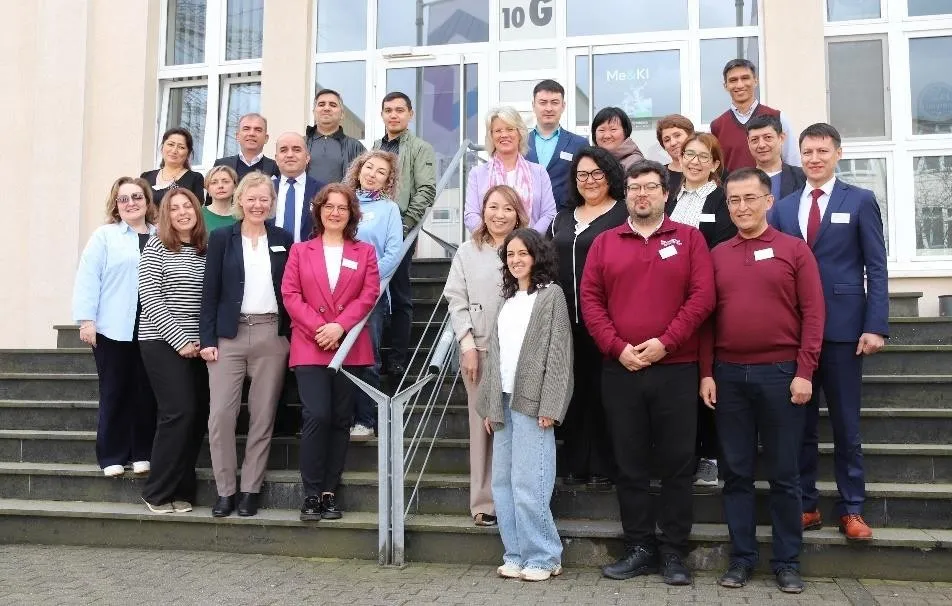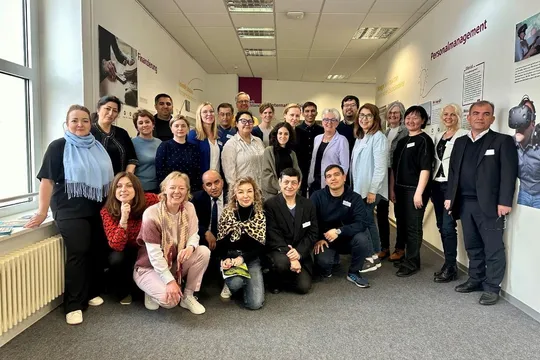First real meeting in the European-Central Asian EU project “CirculEC” (Circular Value Creation and Circular Economy at Universities)
:
Start at the FHM in Bielefeld in Germany, continuation in Santiago de Compostela, Spain and Naples, Italy
The Central Asian delegation from a total of four countries (Kazasthan, Uzbekistan, Tajikistan and Turkmenistan) in the CirculEC project has made its way to Bielefeld.
On Monday, April 22, 22 project members from Central Asia arrived at FHM Bielefeld for two days. The journey will then continue to Spain and Italy.
The aim of this international project meeting is, in addition to getting to know the project participants in real life for the first time, above all to pass on the basics of circular value creation in research and teaching as well as from the economic perspective in Europe to the Central Asian partners.
The following objectives will be pursued during the project period from 2023-2026
- Integration of circular economy concepts into university coursework in Central Asia
- Organizing events and workshops at universities in Central Asia on the circular economy, such as lectures, panel discussions or hackathons, to get students and teachers interested in this topic.
The program in the two days in Germany started with a general presentation of the Fachhochschule des Mittelstandes and its activities in relation to Circular Economy in research and teaching.
This program included a workshop to work out the transferability of a course “Circular Economy” in Bielefeld for course programs in Central Asia.
On the second day, the participants were given an insight into existing FHM research projects in the field of circular value creation.
Here they had the opportunity to talk to a practice partner:
Marc-Philip Lamm from the bakery Lamm in Bielefeld was on hand to answer questions on the topic of sustainable and circular value creation in his own company.
After an overview of the EU project “Linear 2 circular”, the participants had the opportunity to try out the tested tools and methods for themselves.
The second joint day was rounded off with a presentation by Armando Garcia Schmidt from the Bertelsmann Stiftung, who gave the participants an understanding of the political and legal situation in Europe and Germany on the topic of the circular economy.
The event concluded with an idea phase in a design thinking format to integrate what they had heard into their own projects and learn from the wide-ranging input. The participants worked according to the prevailing motto in the field of the circular economy:
“If we could build an economy that uses things instead of consuming them, we could build a future.” (Ellen MacArthur, Ellen MacArthur Foundation)
In the evening, the Central Asian partners were able to visit Sparrenburg Castle and try out the German gastronomy and Bielefeld city center before continuing their journey to Spain on Wednesday with a wealth of impressions.


